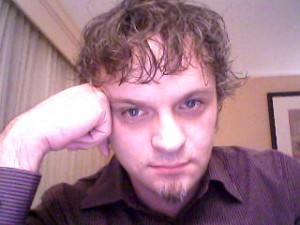 It’s very easy to get caught up in the rush of things. The fire hose of the real time web never stops. The importance of speed has never been more important. We are always on. And I for one see all of this as a good thing.
It’s very easy to get caught up in the rush of things. The fire hose of the real time web never stops. The importance of speed has never been more important. We are always on. And I for one see all of this as a good thing.
Knowledge workers with a gift for seeing connections and order in the chaos few in numbers and are in high demand right now. For those of you who filtering and multitasking doesn’t come naturally, don’t worry you can learn. In order to successfully manage this flood of multitasking data there’s an important step that may seem counter-intuitive: Stopping to ponder what you’ve collected in that brain of yours.
Ponder - To reflect or consider with thoroughness and care.
I love the word, ponder. To ponder is a powerful skill. It’s different than, but related to stepping back to let yourself think. It’s not unplugging or recharging. It’s very deliberate, active and engaged. It’s equal parts conscious thought and equal part subconscious.
It’s about filling your brain with a very deliberate set of knowledge, sometimes related and sometimes seemingly random. And then you pick it all apart mentally. Like untangling your Christmas lights. Most people skip this process. They often rely on sparks of intuition that come in the shower or in that space between wake and sleep. They seek out council from colleagues and friends. These are important steps too but it’s not the same as pondering.
Pondering is active not passive. It’s also an internal and is not a collaborative process. Pondering is an important step in balancing out group think. Group think happens too much at most companies and we see far too much of it in the echo chamber of social media.
I’ve been doing a lot of pondering lately. When I’m taking in information I’m very active online. I’m a social learner so I learn by interacting with all of you on this blog and Twitter and Facebook. Last week and this week I’ve been a little more quiet than normal (normal for me that is). That’s because I’ve been pondering many things. I really enjoy pondering but it’s a more insular activity.
What makes effective pondering:
- Deep and rich immersion in the information to be pondered.
- Time away from distractions and the mental state to ponder.
For me walks are a great time to ponder or just sitting in a coffee shop with headphones, a pen and a notebook.
But it’s probably different for everyone. What works for you?
This post was cross posted at HyperBored.
If you enjoyed this post, make sure you subscribe to my RSS feed!